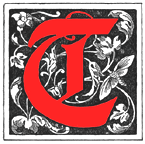Want to know how to navigate the Victorian Web? Click here.

here are two quite distinct forms of nineteenth-century Wisdom Literature which can be called, perhaps rather arbitrarily, the the High Wisdom of the fragmentary insight and the Prudential Wisdom of the maxim and proverb. It will not be easy to exphin just what is meant by High Wisdom and by the developments in its literature, so it will be better to begin by speaking of Prudential Wisdom and its literary embodiments. . . . Behind these utterances loom the Wisdom Books of the Old Testament — Proverbs, the Wisdom of Solomon, and so on — which are filled with sapiential maxims of the sort we find everywhere in the Victorian period: work hard, don't stand surety for another, remember the value of money (or of a friend in high places), and the rest of them. This is wisdom of a utilitarian, practical cast, generalizations from social experience, rules of conduct for the natural man. Those who are skilled in affairs possess this wisdom. Solomon exhibits it in his diplomatic transactions, in his ability to untangle legal riddles, even in his extensive knowledge of botany and zoology. R. H. Pfeiffer says, in his Introduction to the Old Testament, that the skill of craftsmen, of pilots, even of snake charmers is called their "wisdom." This is the more available tradition of wisdom literature, the easiest to speak about, and the one which changes least. [245-46]
Related Material
- Victorian Wisdom Literature: the Fragment
- Augustus and Julius Hare's Guesses at Truth and the fragment as literary form
Bibliography
Preyer, Robert. “Victorian Wisdom Literature: Fragments and Maxims.” Victorian Studies 6 (1962-63): 245-62.
Last modified 30 June 2014